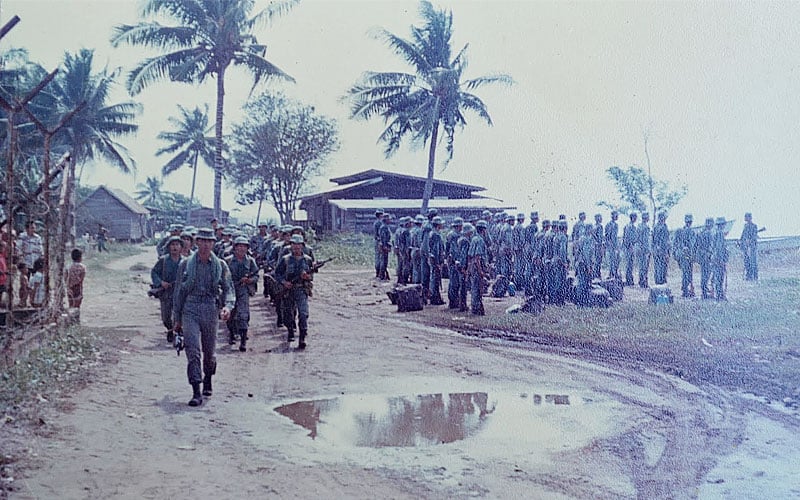 A unit of the Sabah Border Scouts on patrol, before being disbanded in 1986. (United Varsity Students of Borneo pic)
A unit of the Sabah Border Scouts on patrol, before being disbanded in 1986. (United Varsity Students of Borneo pic)PETALING JAYA: Veteran police and military experts have cast doubt over Sabah chief minister Hajiji Noor’s recent call to revive the Sabah Border Scouts, asking whether he genuinely wants to strengthen border security or is simply attempting to shore up popular support.
On Oct 3, Hajiji said the Sabah government was thinking about reviving the unit to ward off security threats, a proposal he said he has discussed with Sarawak premier Abang Johari Openg.
“Is he trying to score points with the interior people? Is this a genuine proposal to revive the Border Scouts or is there some other motive?
“If the state government knew it was to be disbanded (in 1986), it should have put its foot down because these were local people,” said a retired border scouts officer, who requested anonymity.
Security expert and former police chief inspector Riduan Devaruban said he was not sure what role the unit would fulfil.
Stationed in Sabah from 2001 to 2004, Riduan was heavily involved in Ops Pasir, a combined military and police operation set up to crack down on illegal immigration.
He said the state’s coastline is where the real problem lies.
“The islands have staging points, and then once they (illegal immigrants) get in, they immediately move into the settlements,” he said.
The challenges
Retired army brigadier-general Arshad Raji said Sabah poses unique security challenges, with its vast land and coastal borders.
“The Lahad Datu incursion by Filipino militants on Feb 11, 2013, exposed the enormous security problems. It is a lesson not to be ignored,” he said, adding that inherent problems arise from the sheer number of people flooding into the state, both via land and sea.
Arshad said in order to patrol the interior, police huts (pondok polis) were set up strategically along the state’s border with Indonesia.
According to the former Border Scout officer, these huts were originally manned by border scouts drawn from among the Murut people.
“They lived near the borders, in the kampung. They were the eyes and ears. They knew the whole area like the back of their hand. They did a very good job.
“They would patrol and look for smugglers bringing anything illegal into the country, sometimes human trafficking.
“They had relatives across the border in Indonesia, so there were a lot of connections. We had checkpoints at the border, but most people didn’t use them. They used the ‘jalan tikus’ (rat trails), the illegal crossings,” he said.
Riduan said the system continued during his time in Sabah, albeit with police manning the posts after the Border Scouts were disbanded in 1986.
Deploying a new unit
Should Sabah decide to press ahead, Arshad is confident the unit could slot into the state’s existing security framework, including the Eastern Sabah Security Command, because it is a paramilitary force ideally suited for the task.
“They are not deemed a fighting force given the nature of their primary role of monitoring and acting as ‘eyes and ears’ of the military forces,” he said.
However, he said,there would be concerns that would have to be addressed for the unit to become effective.
“It must have a well-structured command and control structure. They would augment the roles of the armed forces and the police in the maintenance of security of the border areas, so there has to be communication between these three security elements.
“They must never be left to operate independently,” he said.
Meanwhile, Riduan had logistical and legal concerns.
“You’re talking about arming someone and putting him in a remote location. Something happens, he loses his weapon, and he has no back-up.
“Do they have investigative powers? Can they go in, enter people’s houses and search? Does the Criminal Procedure Code apply to them?”
He said maintaining the “pondok polis” would be a good interim measure, although he questioned whether it would be effective.
“We can’t even stop smugglers, so how are we going to stop the even more serious elements from coming in?”









 English (US) ·
English (US) ·